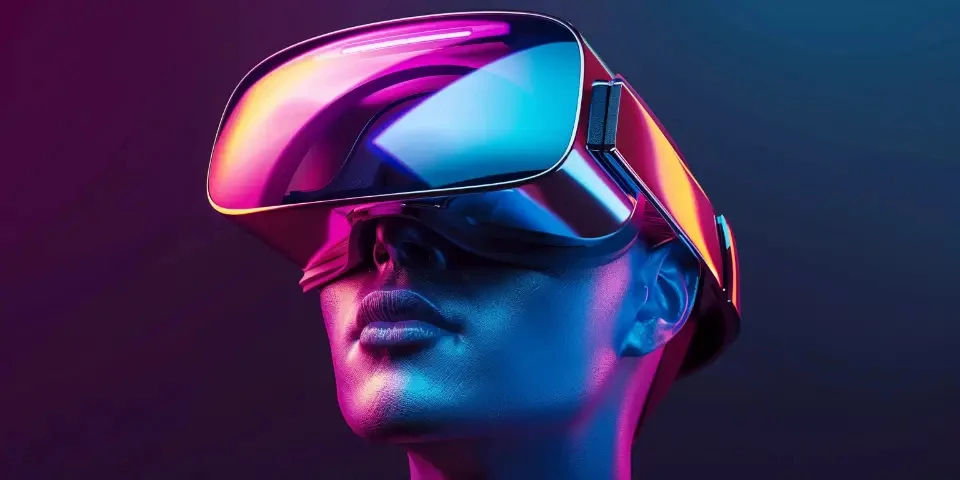Discover New Music with AI: The Dawn of the Jukebox Era
With the advent of artificial intelligence (AI) and machine learning, the way we discover and enjoy music has been revolutionized. The AI jukebox era has dawned upon us, offering a seamless blend of technology and creativity. In this article, we will explore how machine learning is transforming music discovery from various perspectives.
1. Personalized Recommendations
One of the notable advancements brought by machine learning in music discovery is personalized recommendations. AI algorithms analyze users' listening habits, preferences, and contextual data to suggest music tailored to their unique tastes. Services like Spotify and Apple Music owe their success to these intelligent recommendation systems.

Moreover, machine learning allows for continuous refinement of recommendations as users interact with the platform, making the music discovery experience more accurate and effective over time.
2. Genre Classification and Fusion
Machine learning algorithms excel at analyzing vast amounts of data, making them capable of classifying music into specific genres. This enables music lovers to explore various genres effortlessly. Furthermore, machine learning has the potential to identify patterns within different genres, leading to exciting genre fusion experiments and the creation of new musical styles.
One such example is the AI-powered music platform "Amper." Through machine learning, Amper can generate original music based on specific genres, moods, and even desired song lengths. This offers musicians and content creators endless possibilities to explore.
3. Enhanced Music Search
AI-powered music search engines have significantly improved the way we discover unfamiliar songs. By analyzing audio features such as rhythm, melody, and instrumentation, machine learning algorithms can find similar songs with remarkable accuracy. This expands our musical horizons, allowing us to explore artists and tracks we might have otherwise missed.
4. Creative Collaborations
Machine learning is also fostering creative collaborations between AI systems and human musicians. The OpenAI project, for instance, developed "MuseNet," an AI-powered music generation system. MuseNet can compose entire orchestral scores, imitating the styles of famous composers. This opens up new avenues for musicians to collaborate with AI, pushing the boundaries of musical creativity beyond what was previously imaginable.
Additionally, AI-powered tools like Jukedeck allow users to create customized background music for various purposes, such as videos or presentations. These tools leverage machine learning algorithms to generate unique tracks based on user preferences.
5. Discovering Hidden Gems and Underground Artists
Machine learning algorithms enable music platforms to unearth hidden gems and promote underground artists. By leveraging user data and interaction patterns, AI can identify talented musicians who might not have received mainstream attention. This democratizes music discovery, giving deserving artists a chance to shine.
6. Mood and Context-Based Playlists
Through machine learning, music services can generate mood and context-based playlists. By analyzing lyrics, audio features, and user behavior, AI algorithms understand the emotional undertones of songs. This allows platforms like Moodagent to curate playlists that match users' moods or specific activities, such as workout sessions, relaxation, or studying.
7. Music Analysis and Insights
Machine learning provides a powerful tool for music analysis, enabling researchers and musicians to delve deeper into the elements that make up a song. AI algorithms can extract features like tempo, key, chord progressions, and even sentiment analysis from musical compositions. These insights enhance our understanding of music theory and unlock new possibilities for composition and arrangement.
8. Ethical Considerations and Music Ownership
While machine learning offers numerous benefits for music discovery, it also raises ethical considerations regarding music ownership. As AI systems generate music and recommendations, ensuring fair compensation for artists and songwriters becomes paramount. Striking the right balance between music discovery and fair compensation is necessary for a sustainable and ethical future.
9. Impact on Traditional Radio and Streaming Services
Traditional radio and streaming services face new challenges with the rise of AI-powered music discovery. As personalized and automated playlists become prevalent, broadcasters and streaming platforms must adapt their strategies to stay relevant. Machine learning provides an opportunity for them to enhance their offerings, engaging listeners with curated content based on their preferences.
10. Enhancing Live Performances and Concert Experiences
Machine learning also has the potential to enhance live performances and concert experiences. By analyzing past performances, audience reactions, and other data, AI algorithms can assist musicians in creating personalized setlists, adapting to the preferences of specific venues or audiences, and even generating real-time visual effects synchronized with the music.
11. Challenges in Copyright Protection
The advent of AI jukeboxes brings a new set of challenges for copyright protection in the music industry. Ensuring that AI-generated music does not infringe upon copyright laws and that artists' intellectual property rights are preserved requires careful consideration and legal frameworks. Striking a balance between innovation and compliance is crucial for a sustainable future.
Frequently Asked Questions
Q: Can AI help me discover new music from different countries and cultures?
A: Yes, machine learning algorithms can analyze user preferences and suggest music from various countries and cultures, providing a gateway to diverse musical experiences.
Q: How accurate are AI-powered music recommendations?
A: AI-powered music recommendations have become increasingly accurate over time, with algorithms continuously learning from user interactions and refining their suggestions.
Q: Will AI replace human musicians in the future?
A: AI may enhance and collaborate with human musicians, but it is unlikely to replace them entirely. The human touch, creativity, and emotional connection in music-making remain irreplaceable.
References:
- Amper: AI Music Composer.
Explore your companion in WeMate